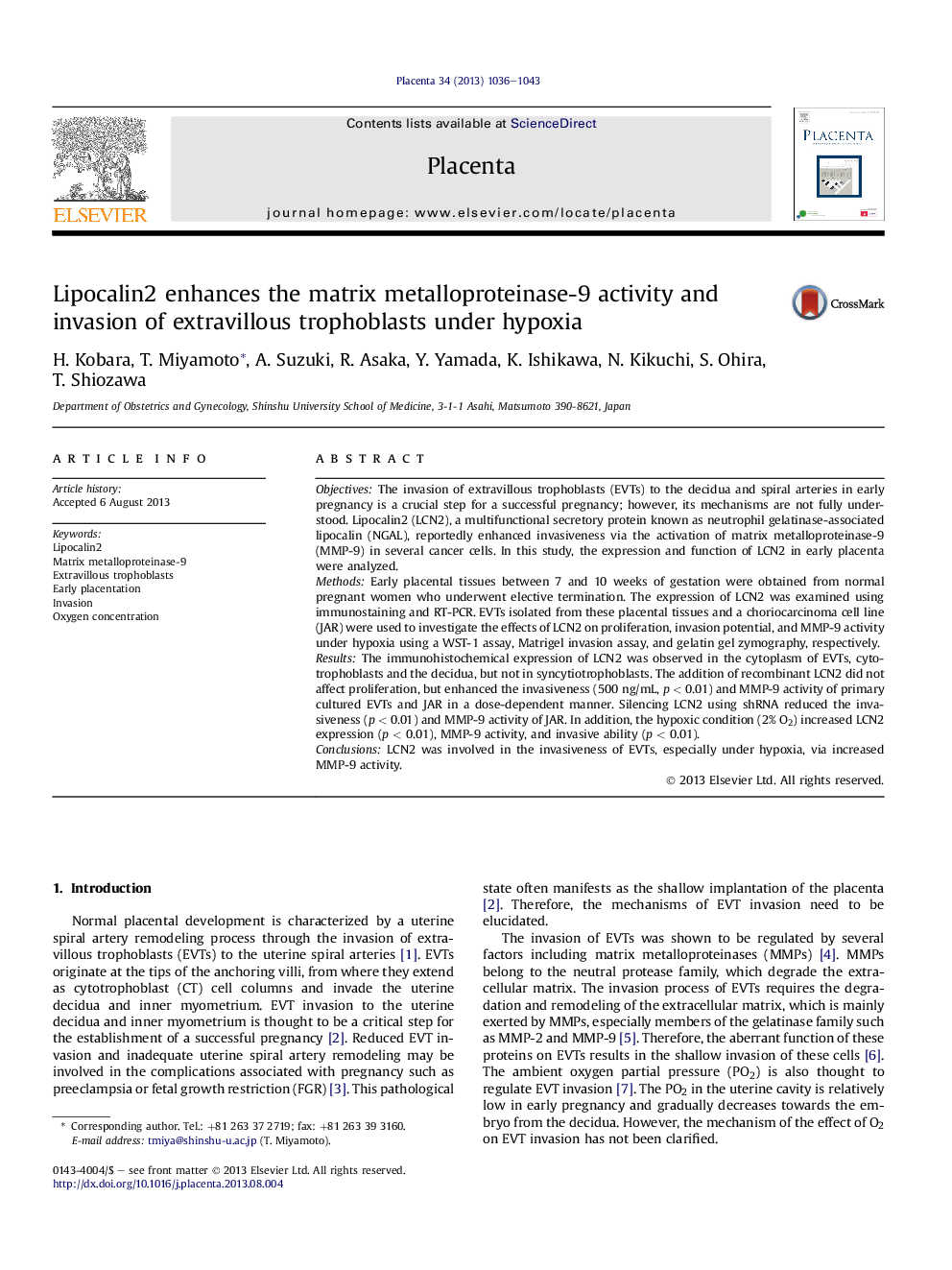| Article ID | Journal | Published Year | Pages | File Type |
|---|---|---|---|---|
| 5895785 | Placenta | 2013 | 8 Pages |
ObjectivesThe invasion of extravillous trophoblasts (EVTs) to the decidua and spiral arteries in early pregnancy is a crucial step for a successful pregnancy; however, its mechanisms are not fully understood. Lipocalin2 (LCN2), a multifunctional secretory protein known as neutrophil gelatinase-associated lipocalin (NGAL), reportedly enhanced invasiveness via the activation of matrix metalloproteinase-9 (MMP-9) in several cancer cells. In this study, the expression and function of LCN2 in early placenta were analyzed.MethodsEarly placental tissues between 7 and 10 weeks of gestation were obtained from normal pregnant women who underwent elective termination. The expression of LCN2 was examined using immunostaining and RT-PCR. EVTs isolated from these placental tissues and a choriocarcinoma cell line (JAR) were used to investigate the effects of LCN2 on proliferation, invasion potential, and MMP-9 activity under hypoxia using a WST-1 assay, Matrigel invasion assay, and gelatin gel zymography, respectively.ResultsThe immunohistochemical expression of LCN2 was observed in the cytoplasm of EVTs, cytotrophoblasts and the decidua, but not in syncytiotrophoblasts. The addition of recombinant LCN2 did not affect proliferation, but enhanced the invasiveness (500 ng/mL, p < 0.01) and MMP-9 activity of primary cultured EVTs and JAR in a dose-dependent manner. Silencing LCN2 using shRNA reduced the invasiveness (p < 0.01) and MMP-9 activity of JAR. In addition, the hypoxic condition (2% O2) increased LCN2 expression (p < 0.01), MMP-9 activity, and invasive ability (p < 0.01).ConclusionsLCN2 was involved in the invasiveness of EVTs, especially under hypoxia, via increased MMP-9 activity.
